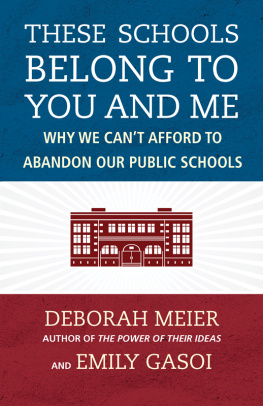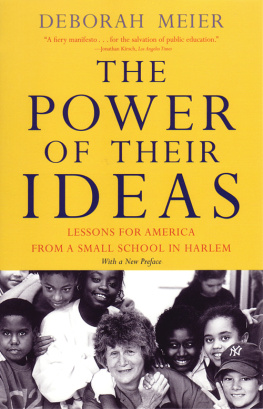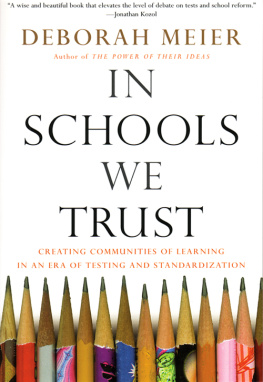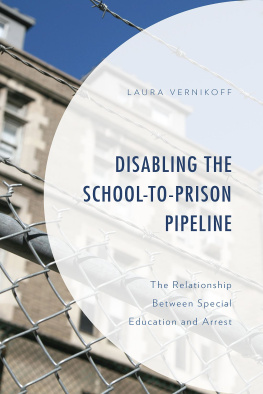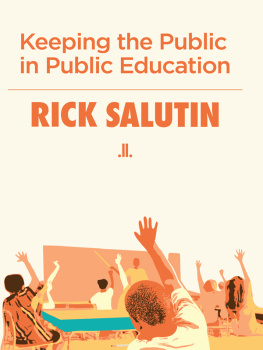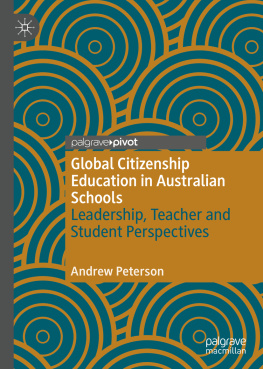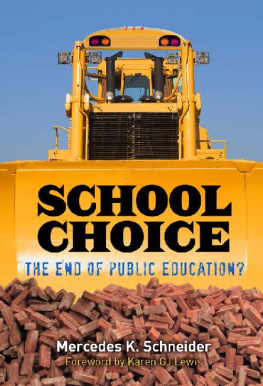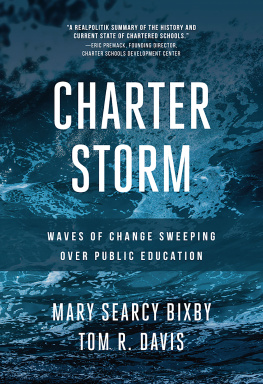
To our colleagues and to the families
with whom we worked to build public schools
for a more equitable and democratic future
PREFACE
I MET DEBORAH MEIER in the summer of 1997 when I applied for a job at the Mission Hill School, which would open its doors for the first time that September. I was a young teacher in my twenties with two years of classroom experience under my belt. Deborah, on the other hand, had been in the field for over three decades. She had been directly involved in starting four internationally recognized democratic public schools and had a hand in opening scores more in New York City; she was by then in her mid-sixties, the age when most people consider retirement. But Deborah, impatient to jump back into the bustle of school life after a short reprieve, was gearing up to start yet another small, democratically governed school, this time, to my great fortune, in my then hometown of Boston.
I had read Deborahs first book, The Power of Their Ideas, the year before I began at MHS and I was completely taken with it. I felt as if the voice, Deborahs voice, was speaking directly to me, to my aspirations as an activist and as a novice educator. Since that time, Deborah has become my mentor, my moral north star, and my dear friend. I have grown immeasurably professionally and personally from having had the opportunity to work with her during our time at the Mission Hill School, and it has been an incredible journey and deep honor to work with her on this project.
Thus, the publication of this book in September 2017 marks twenty years since the Mission Hill School first opened its doors, as well as two decades of friendship and work together. But even as this is an auspicious year for Deborah and me as friends and colleagues, it is also a year of intense national foreboding, for public education and for democracy writ large. The 2016 election of an imperious billionaire to the presidency threatens to transform the fundamental essence of our nation, from a democracy with some autocratic tendencies to an autocracy with (if we the people are vigilant and our institutions enduring) some residual democratic tendencies. Indeed, a report from the watchdog organization Freedom House has put the United States on its Countries to Watch in 2017 list, including us among nations that may be approaching important turning points in their democratic trajectory.
Emily Gasoi
I OWE A VERY SPECIAL THANK-YOU to my friend and coauthor, Emily Gasoi, for making this book possible. She played a central role in the conception of how to organize the chapters so that we could tell our shared stories. The topic, democracy and education, has been a lifelong obsession (correction: actually, the democracy part has been lifelong, while the education part didnt take hold until about fifty years ago, long enough!). When we started working on the book, it was a fully joint venture. But along the way, my eyesight got worse and worse, and finally, in April of 2016, when we were really in the midst of it, my eyes more or less gave up. I now have to rely on the kindness of my electronic devices to read to me and write what I dictate orally. In short, much of the work finishing this project has rested in Emilys hands, which were, meanwhile, also busy with family, her five-year-old daughter, Frankie, and her other work. She deserves credit for all the books strengths and none for its weaknesses.
Deborah Meier
INTRODUCTION
Emily Gasoi
I MET MY FRIEND ERIN , a fifth-grade teacher in a DC public school, for dinner one evening toward the end of the school year. She had come from work and was in an uncharacteristically irritable mood. When I asked her what was wrong, she explained that a high-level administrator from the superintendents office had visited her school that day and had spoken for thirty minutes or so about best practices hed observed taking place at a well-known charter school in California. In the classrooms, he explained, he saw students engaged in projects, asking questions, discussing ideas, and excited to talk with him about what they were working on. He saw teachers popping in to observe one anothers classrooms. After students left for the day, he observed teachers working together to help one of their colleagues improve an aspect of a lesson with which she was grappling.
These are the kinds of practices, he concluded, we need to see more of here in DC schools. Erin explained that she was overcome with a range of emotions listening to this administrator speak. At first she was filled with hopeyes, these were the kinds of practices she too knew were best, and she agreed that such a change would greatly benefit the students and teachers in her school. But then her hope faded to the more familiar feeling of frustration, as she remembered the state accountability plan recently passed by the superintendents office in which 70 percent of schools quality would be based on student test scores, and over half of the evaluation determining whether her salary should reflect that she is a highly effective teacher would also be based on student test scores. The curriculum that Erin is mandated by the superintendents office to use is 100 percent aligned with the state test. Erin was left puzzling out how to square the administrators rousing words with the reality of her daily work within a system that allowed almost no room for her own professional or creative input.
Erins story vividly captures the insidious cross tide of mixed messages and misguided priorities in which educators find themselves trapped. On the one hand, we are living at a time in which we know more than ever, based on scholarly research and educators practical knowledge, about how students learn best (primarily, though not exclusively, through observation, social interaction, play, practice, and experience) But on the other hand, our current education policiesfocused as they are on high-stakes, top-down mandates tied to the production of numeric datareflect none of the best practices that only the most determined innovative schools manage to model, or that research and practitioner knowledge have borne out. In such a system, in which practitioners do not have the right to exercise their own professional judgment, it is hard to imagine how they will model for childrenthe future stewards of our commonwealwhat it means to be empowered citizens in a society that is predicated on the lofty premise of being governed of, for, and by the people.
We write this book about our experience working in democratic schools and in the wider arena of education reform in part to illustrate what we mean when we say these schools belong to you and me. But we also do so because the kinds of schools that we describe throughout these chaptersschools that have pioneered and that have attempted to sustain their innovative, democratic, or just demonstrably good practicesare in danger of disappearing. Indeed, it is not an overstatement to say that, in 2017, our very institution of free, universal education is at risk of succumbing to the forces of free-market ideology, which have overtaken our national sensibilities.
Over the last twenty-five years, entire public school systems in urban and rural communities across the countryfrom the City of Brotherly Love to the Motor City, from the Windy City to the city surrounded by Gulf Stream watersseem to be sinking into the quicksand of lost causes or fighting their way back from the shock therapy of wholesale privatization.

